JBL 4435 Studio Monitor – Quick Info
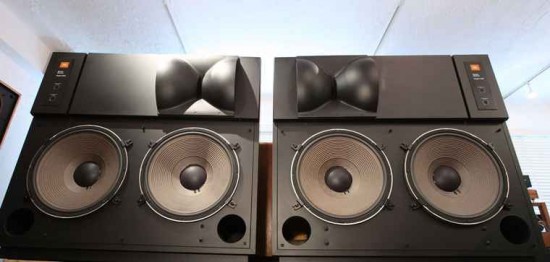 Titolo: JBL 4435 Studio Monitor
Titolo: JBL 4435 Studio Monitor
Presentate nel 1981, questi monitor da studio sono stati un prodotto molto desiderato grazie alla loro modernità progettuale rispetto ai modelli precedenti…..
David Smith, February 2005
The 4430 and 4435 Bi-Radial Studio Monitors were amongst the most successful professional loudspeakers ever produced by JBL…..
Quote
JBL 4435 Studio Monitor
Quotazioni: euro 2.600/3.300 la coppia
(secondo le condizioni estetiche, la presenza degli imballi originali, ma soprattutto se gli esemplari presentano le tele integre e il cablaggio originale. Inoltre il crossover deve essere quello originale e non modificato. )
JBL 4435 Studio Monitor . Presentate nel 1981, questi monitor da studio sono stati un prodotto molto desiderato grazie alla loro modernità progettuale rispetto ai modelli precedenti. Forte dei suoi driver, le 4435 forniscono dinamica e un grande coinvolgimento, mantenendo un controllo che altri modelli della stessa casa non hanno. Buona la ricostruzione scenica grazie alle lenti acustiche poste davanti ai trasduttori superiori.
Prodotto storico e molto ricercato nel mercato del vintage.
Bruno Fazzini
Un po’ di storia
James Lansing, alla fine del 1949, aveva un debito per circa 20.000$ e Robert Arnold cercò di aiutare James Lansing continuando a fornire Alnico V essendoLansing un grande sostenitore nell’utilizzo dell’alnico per i suoi altoparlanti. Uno dei primi componenti ad utilizzare tale materiale fu il woofer D101, un poderoso 15 pollici con cupola in alluminio e foro posteriore per la ventilazione, quasi immediatamente sostituito con il D130, sviluppato con Robert Arnold utilizzando, appunto, l’Alnico V. Grazie a Lansing questo materiale si affermò nell’industria e venne utilizzato sempre più spesso.
Purtroppo, nel settembre del ’49 ci fu la tragica fine di J.B.Lansing che si suicidò con un colpo di pistola. Fu grazie alla sua assicurazione di 10.000$ precedentemente sottoscritta che la JBL sopravvisse a tale catastrofe finanziaria. William Thomas rilevando anche la parte che James Lansing lasciò alla moglie, divenne, nel 1950, unico proprietario della James B. Lansing Sound. Lo scontro con la Altec, durato diversi anni, portò al cambio definitivo del nome, che divenne semplicemente JBL.
Questa azienda divenne una piccola industria che velocemente conquistava clienti e appassionati, grazie a prodotti di notevole qualità. Grande successo arrivò con la mitica Hartsfield e con alcuni driver che hanno fatto veramente la storia dell’hi-fi. Thomas, entrando in possesso di alcuni disegni del driver WE594 e sostituendo l’elettromagnete con l’alnico V realizzò il driver 375. Questo componente consentì alla JBL di entrare nel grande mercato della sonorizzazione, sviluppando quasi immediatamente lenti acustiche e trombe radiali. Il grande successo arrivò con le “Paragon” del 1957, riferimento che rimase per oltre un ventennio.
Lansing Heritage
David Smith, February 2005
The 4430 and 4435 Bi-Radial Studio Monitors were amongst the most successful professional loudspeakers ever produced by JBL. They were in production longer than any other JBL main studio monitor, being introduced in 1981 and not discontinued until 1996 for the 4435 and 1999 for the 4430. David Smith was the engineer responsible for the system design of these monitors. The following is his account of the background and design of these systems.
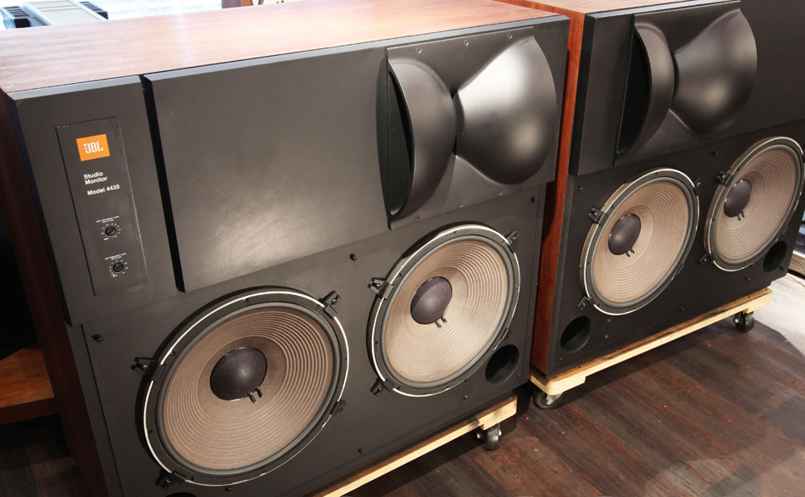
I came to JBL in September of 1980. It was my second job in the industry. I had started out in an obscure OEM speaker company called Essex Cletron in Cleveland. When Essex announced that they were moving the engineering department to Indiana I thought it was a good time to move on. Interestingly, soon after their move they were bought by Harman and turned into Harman-Motive, a long lasting and highly profitable sister company for JBL.
At the time JBL had a good line of studio monitors including the 4350, the 4343 and the 4315 (a product I much admired). The 4343, and especially the 4350, were very large and were sometimes referred to ironically as “Japanese bookshelf speakers”. This is not a slur on their quality, but more reflected their great popularity in the Asian market. As a practical issue their sheer size made them a little over the top. Studios typically build their main monitors into soffets over the control window and the 4350 was just too big. The biggest problem, though, was that UREI was stealing market share with their 811 and 813. These were based on an Altec 604, always a popular unit, with a “time aligned” network and some enhancements to the horn. The sound was good enough and the size was reasonable and it had a good story in the time aligned network…
Specifications:
| Frequencyresponse : | 35Hz…16Khz (± 3dB) |
| Sensitivity : | 96dB (1W @ 1m) |
| Efficiency : | 2,6% (half-spacereference) |
| 1,25Khz…16Khz horizontaldispersion : | 100° (+10° / -30°) |
| 1,25Khz…16Khz verticaldispersion : | 100° (+0° / -30°) |
| 800Hz…16Khz directivity factor (Q) : | 8 (+4 / -2) |
| 800Hz…16Khz directivity index (DI) : | 9dB (+2 / -1) |
| 300Hz…1,6Khz group delay : | 500µs (± 100µs) |
| 2,5Khz…20Khz group delay : | 0µs (0 / + 50µs) |
| Mid control : | -inf…+4dB @ 2Khz |
| High control : | -inf…+0dB @ 12Khz |
| Nominalimpedance : | 8 Ohm |
| Minimum impedance : | > 4 Ohm |
| Large signal, input & output characteristics | Large signal, input & output characteristics |
| Single amp. max. power input : | 375W |
| Single amp. continuous sine-wave : | see Fig. 11 |
| Single amp. short-term peak | 2kW (< 10ms) |
| Biamplificationcontinuous sine-wave : | see Fig. 11 |
| Max. SPL continuous music : | 122dB |
| Max. SPL continuous sine-wave : | see Fig. 12 |
| Recommended bi-amp. power (low) : | 400W |
| Recommended bi-amp. power (high) : | 150W |
| Power linearity (1W…100W continuous) : | < 1dB compression of SPL output |
| Distortion | Distortion |
| 100dB SPL / on-axis / 1m / 2,5W input | 100dB SPL / on-axis / 1m / 2,5W input |
| K2 40Hz…100Hz : | < 0,5% |
| K2 100Hz…1Khz : | < 0,25% |
| K2 1Khz…8Khz : | < 2% |
| K3 low : | < 0,15% |
| K3 mid : | < 0,6% |
| K3 high : | < 0,6% |
| 110dB SPL / on-axis / 1m / 25W input | 110dB SPL / on-axis / 1m / 25W input |
| K2 low : | < 0,75% |
| K2 mid : | < 0,3% |
| K2 high : | < 6% |
| K3 low : | < 0,25% |
| K3 mid : | < 1% |
| K3 high : | < 1% |
| General | General |
| Crossover frequency : | 1Khz (2nd low driver active below 100Hz) |
| Driver complement : | 2x 2234H lowfrequency |
| 1x 2425H comprsession driver | |
| 1x 2344 Bi-radialhorn | |
| Dimensions : | 90,8 x 96,5 x 43,5cm |
| 90,8 x 96,5 x 51,5cm (with horn) | |
| Enclosure volume : | 0,28m3 (divided into two chambers) |
| EnclosureHelmhotzresonance (fB) : | 26Hz |
| Finish : | oiledwalnut |
| Grille : | dark blue stretchedfabric |
| Shippingweight : | 114kg |
| List price : | 550,000¥ (1982) |
Video






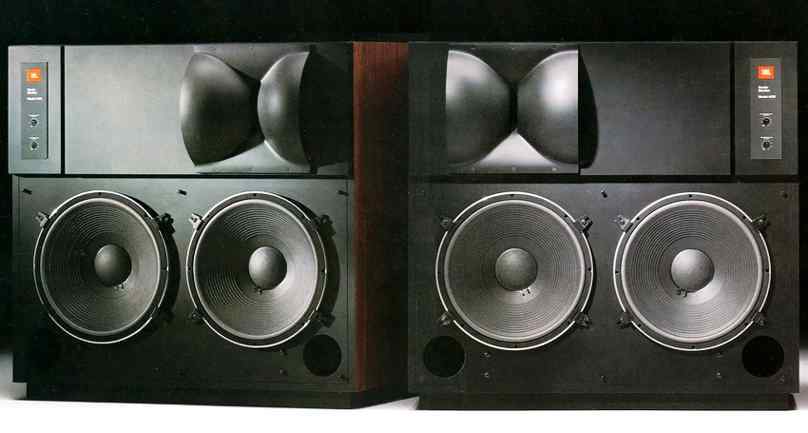
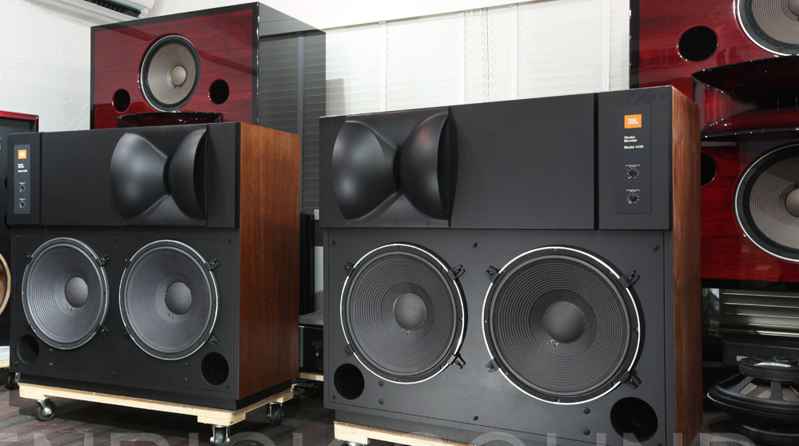
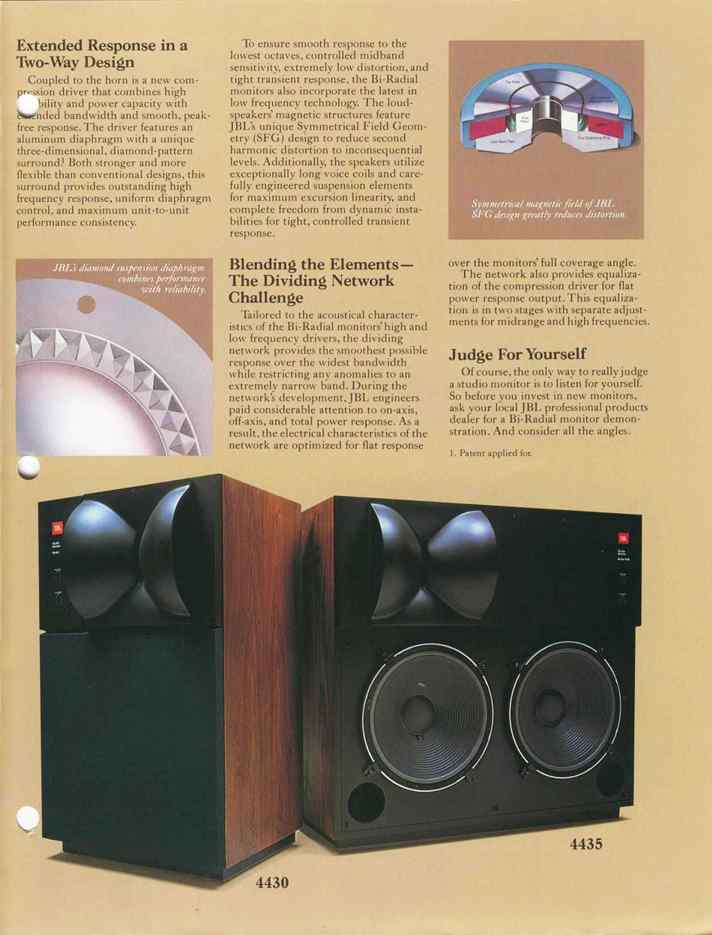
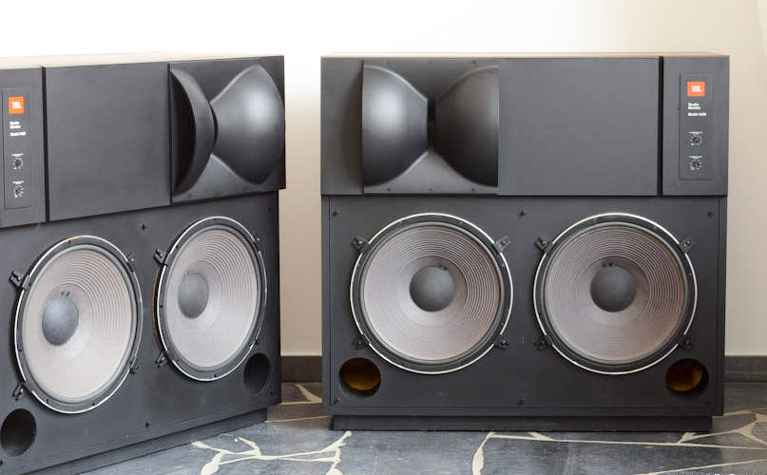
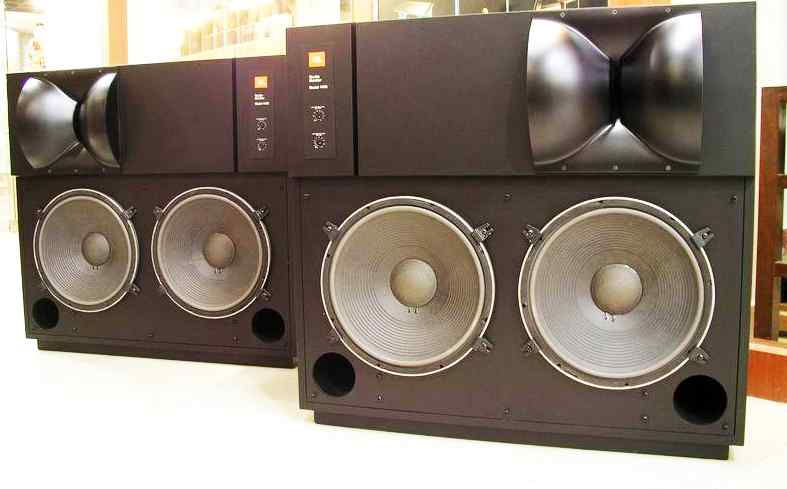
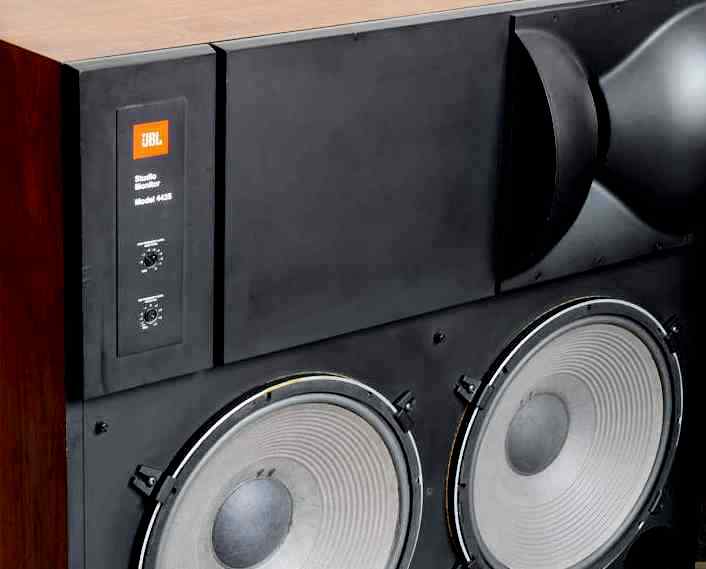
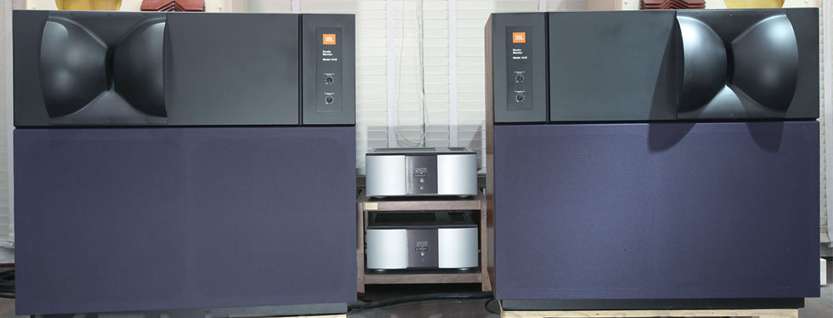
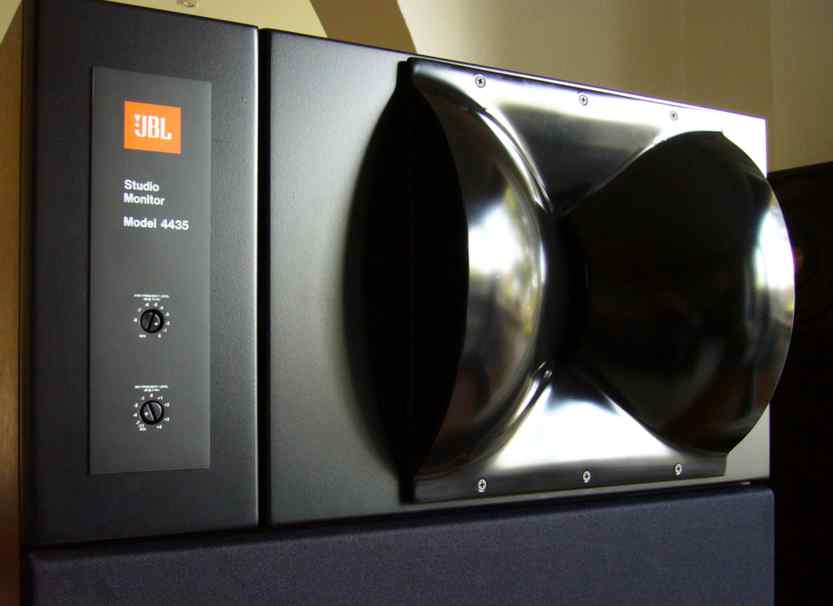
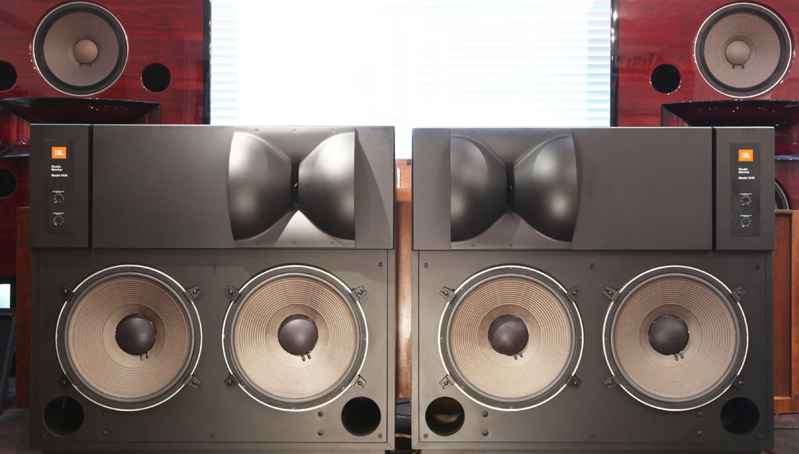
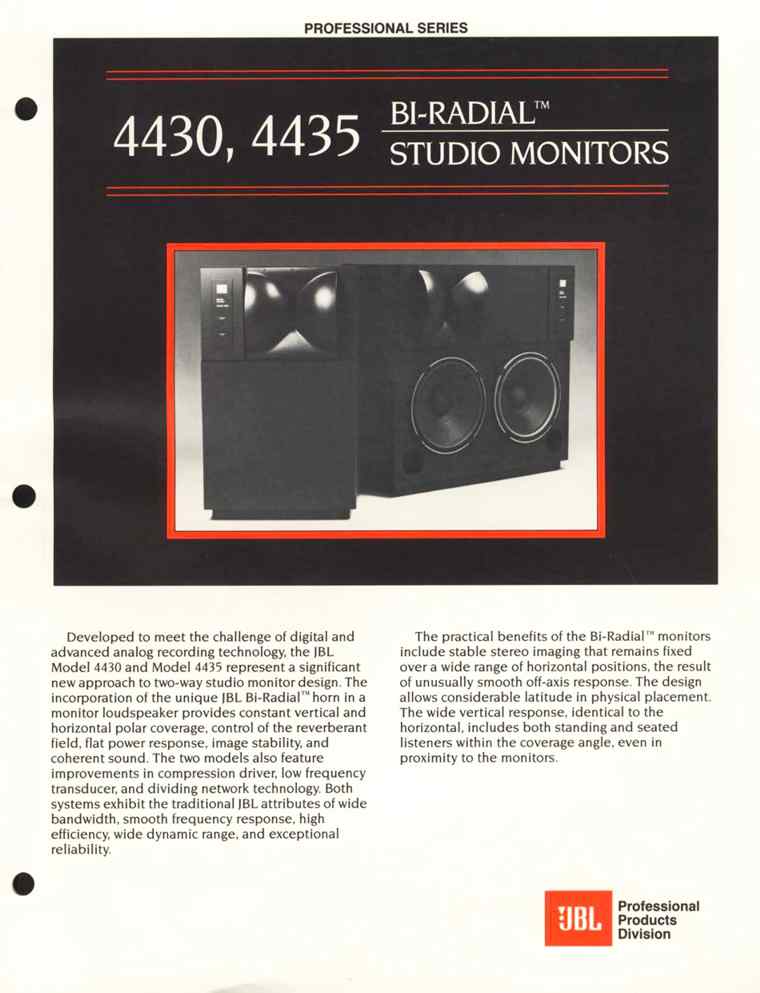
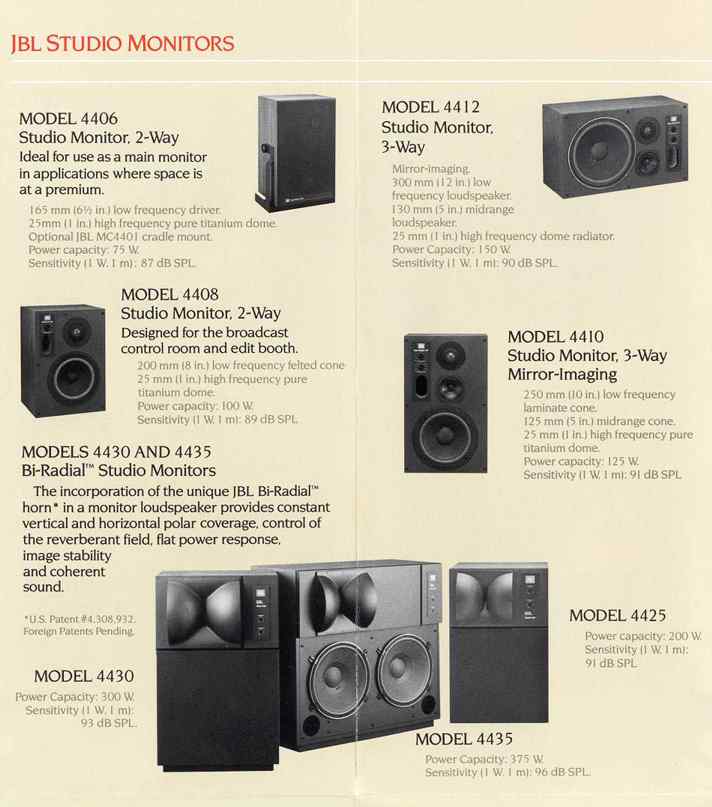
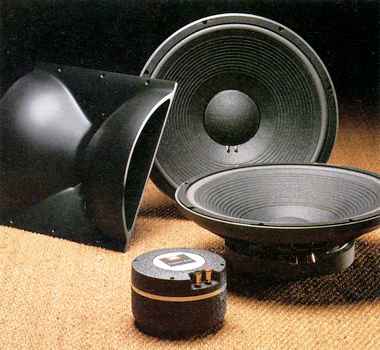
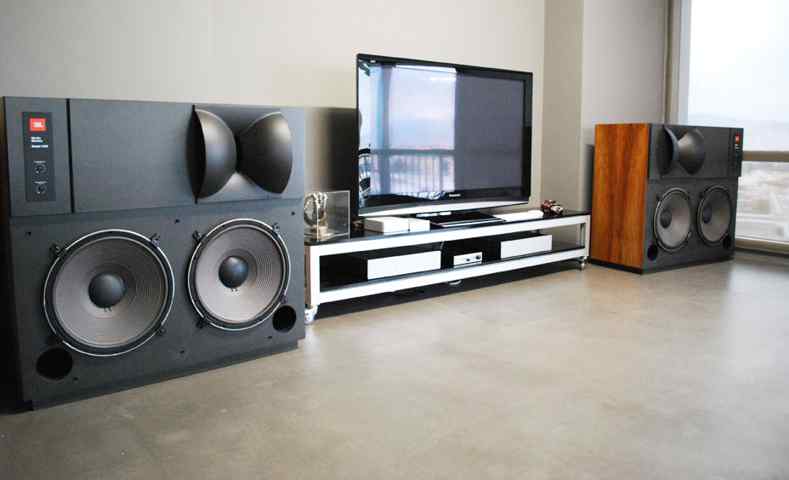
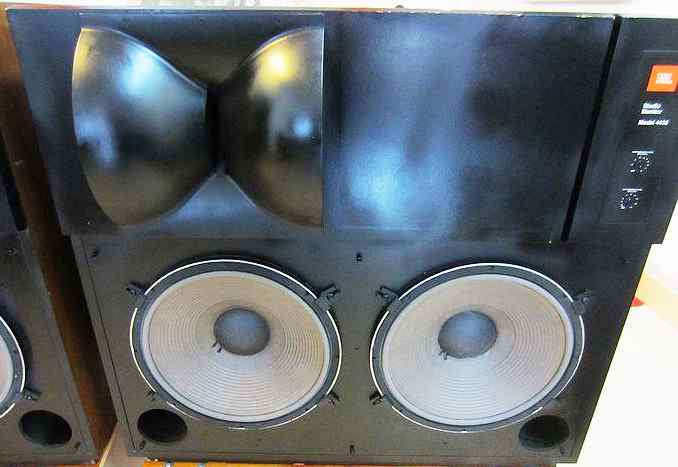


Pingback:News dagli altri siti del nostro gruppo - AnnuarioAudio